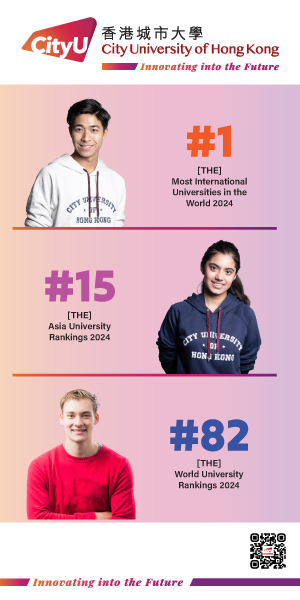
Government, industry and universities must work together to bring impactful inventions to market
Government, industry and university stakeholders must work together to foster an effective innovation ecosystem, said the panellists at a session on inclusive sustainability at the 2024 THE Global Sustainable Development Congress in Bangkok. The panel discussion, held in partnership with the City University of Hong Kong (CityUHK), brought together academics and entrepreneurs to discuss how Hong Kong had succeeded in positioning itself as a research-intensive innovation hub.
To promote impactful technology transfer, universities needed to engage with industry and government, said Angus Yip Hin-Lap, professor at the Department of Material Science and Engineering and School of Energy and Environment, and associate director of the Hong Kong Institute for Clean Energy at the university. “At CityUHK, we provide a good ecosystem for promoting technology transfer and encouraging the faculty and students to turn their innovation ideas into real products.”
The university has a strong research focus. “But we hope that our faculty’s research prototypes are not only for paper publications that sit on bookshelves, but can also be translated into commercial products,” said Edwin Tso Chi-Yan, associate dean for internationalisation and outreach and associate professor at the School of Energy and Environment at CityUHK.
The Hong Kong Institute for Clean Energy specifically focuses on clean energy research that can generate knowledge and form the basis of start-up companies and the commercialisation of technology. “We have lots of faculty from different disciplines working together to develop new energy solutions,” Yip said. The institute investigates energy generation, energy storage, energy saving, energy distribution and energy policy to advise the government.
“We include investors and welcome them to invest money in faculty projects,” Tso said, pointing out that the Hong Kong government had numerous funding schemes to encourage investment and entrepreneurship. “For every US dollar an investor invests, the Hong Kong government will match that US dollar,” he said.
Martin Zhu Yihao, a CityUHK PhD graduate, co-founded i2Cool, a spin-out technology start-up based on research developed at the university. It developed a patented passive radiation cooling paint, which can be used to save energy. Because the technology cools buildings without the need for electricity, it reduces carbon emissions and reliance on air conditioners.
The start-up was nurtured by HK Tech 300, an innovation and entrepreneurship programme by CityUHK. “At the beginning, we were all scientists. We didn’t know anything about commercialisation, promotion or marketing,” Zhu explained. “But with this programme, we were connected with mentors in the market and from them, we learned how to run a business.” The technology is now being used in various sectors around the world, from logistics to car manufacturers, he said.
Yee Ping Law, secretary general of the Greater Bay Area Carbon Neutrality Association, said that green financing was not charity but a good business model. The Great Bay Area consists of nine cities and two special administrative regions in South China, where Law plays an active role in connecting green finance to green technology.
However, a major barrier to green technology proliferation in the Greater Bay Area was policy, said Gary Yeung Man-Yui, president of the Smart City Consortium. “Every city is like a layer, and they have their own technologies or regional policies. If we want to make them a cluster, we need to consider not just our technology but also our logistics flow, our capital flow and the information flow.”
The panel:
- Yee Ping Law, secretary general, Greater Bay Area Carbon Neutrality Association
- Minming Li, associate dean for undergraduate education, College of Engineering and professor, Department of Computer Science, City University of Hong Kong
- Edwin Tso Chi-Yan, associate dean for internationalisation and outreach and associate professor, School of Energy and Environment, City University of Hong Kong
- Gary Yeung Man-Yui, president, Smart City Consortium
- Angus Yip Hin-Lap, professor, Department of Material Science and Engineering and School of Energy and Environment and associate director, Hong Kong Institute for Clean Energy, City University of Hong Kong
- Martin Zhu, co-founder, i2Cool and PhD graduate, City University of Hong Kong
Find out more about the City University of Hong Kong.




































